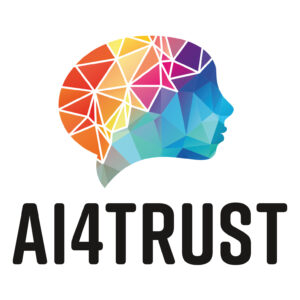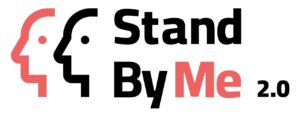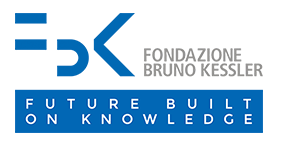A resilient society is a society capable of addressing societal challenges and achieving long-term structural transition in a fair and inclusive way, building the conditions for a transition-oriented change and promoting cohesion and inclusion. Also in light of the impacts of the COVID-19 pandemic, the FBK Digital Society Center participates with contributions focused on societal challenges in which digital technologies can play a decisive role: promotion of social inclusion and equality, prevention of discrimination with attention to vulnerable groups, fight against disinformation (“fake news”) and hate speech, improvement of security and accessibility of cities. In all these areas, the digital technologies on which the Center works can offer key contributions, paying particular attention to ethical, privacy and personal data protection aspects. In particular, the major challenges (RS) on which the center focuses to build a resilient society are the following:
- Human Rights and Inclusive Society: Raise citizens’ awareness of human rights and against crime, induce a gradual but permanent and collective change in their behaviours, and contribute to form new resilient habits.
- Protection of Public Spaces and Disaster Resilience: Better protect citizens in public spaces (fight against crime and terrorism & disaster resilience), through more effective prevention, preparedness and response.
- Fight against Hate Speech and Disinformation: Prevent and counter online hate speech and disinformation, and foster mutual respect and the need to develop common principles for a global online space.

AI4TRUST aims to combat misinformation and disinformation in the EU by creating a trust-based environment that integrates the automated monitoring of social and news media with advanced AI-based technologies to enhance the work of human fact-checkers.

CESAGRAM aims to ensure that grooming for sexual abuse and potentially leading to going missing is prevented insofar possible and that victims of grooming are identified and receive appropriate support before, during and after a disappearance.

StandByMe 2.0 aims at countering online and offline violence against women and girls caused by toxic masculinities and related harmful stereotypes. The project will empower students to detect it and support their voice as change agents.

HATEDEMICS strengthens the preventive and reactive measures against hate speech and disinformation online. It empowers NGOs/CSOs, factcheckers, public authorities and youngsters to prevent and combat polarisation, spread of racist, xenophobic, intolerant speech and conspiracy theories.

IAMI aims to transform entity identification and resolution in security, intelligence, and investigations, addressing current limitations with advanced AI-powered software. At its core is the Identity-Attributes-Matrix (IAM).

PRECRISIS aims to enhance the protection of public spaces and foster integrated, smarter, and innovative security by empowering law enforcement authorities (LEAs), first responders, public space managers, and other security stakeholders, while strengthening public-private cooperation.

StandByMe aims at countering online violence against women and girls via youth actions in Italy, Poland and Hungary and the rest of Europe. The project will empower students to detect it and support their voice as change agents.

KID_ACTIONS aims to address the cyberbullying phenomenon among children and adolescents through a mix of interactive education and gamification tools and methods within formal and non-formal learning settings at the EU level.

PROTECTOR project will significantly enhance the protection of places of worship through the assessment of hate crime and terrorism threats, examining protective security measures and Law Enforcement Agency responses.

It will develop an Edge-to-Fog-to-Cloud ubiquitous computing framework to enable multimodal perception and intelligence for audio-visual scene recognition, event detection and situational awareness in a Smart City Environment.

It examines how Europe and the EU are seen by people who immigrated there or intend to do so, by examining the perceptions among this group, how they are formed, whether they correspond to reality and how they influence migrations.

CREEP identifies and prevents the impacts of cyberbullying on young people. It seeks to realise advanced technologies for early detecting the phenomena by monitoring social media and personalized recommendations tailored to adolescents’ needs.

HATEMETER aims at systematising, augmenting and sharing knowledge on Anti-Muslim hatred online, and at increasing the efficiency and effectiveness of NGO/CSOs in preventing and tackling Islamophobia at EU level, by developing and testing an ICT platform.

It provides local administrations an enhanced decision-making system based on cognitive technologies for a data/fact-driven skill-based management of the integration of newly arrived migrants and refugees, improving their prospects and quality of life


